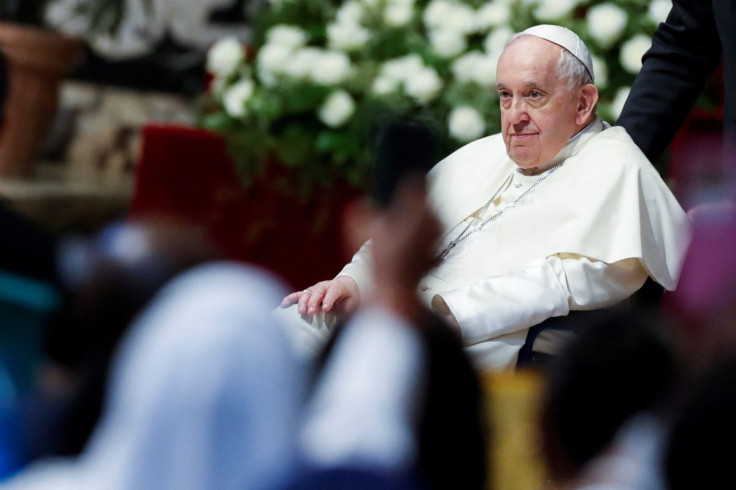Factbox: Key Facts On Pope's Canada Visit To Apologize For Residential School Abuse

Pope Francis arrives in Canada on Sunday to apologize for the wrongs done to indigenous people by Roman Catholic priests and nuns who ran abusive residential schools.
Here are key things to know about the Pope's week-long visit.
WHAT HAPPENED IN CANADA'S RESIDENTIAL SCHOOLS?
Between 1831 and 1996, more than 150,000 indigenous children were taken from their homes and put into residential schools run primarily by Christian churches, predominantly the Catholic church, on behalf of the government. The stated aim of the schools was to assimilate indigenous children.
Many children were subjected to rape, abuse and malnutrition in what Canada's Truth and Reconciliation Commission in 2015 called "cultural genocide".
HOW DID THE POPE'S TRIP COME ABOUT?
In May 2021, the Tk?eml?ps te Secw?pemc First Nation, near Kamloops, British Columbia, said they had found the suspected remains of 215 people, some as young as three years old, on the grounds of the Kamloops Indian Residential School, which closed in 1978.
The discoveries caused outrage, reopening old wounds over Canada's residential school legacy and leading to fresh demands for accountability from the Catholic Church.
The suspected remains of more than 1,000 people have since been found buried on or near the sites of former residential schools around the country.
Francis issued an apology after meetings with delegates from various indigenous nations at the Vatican in April.
However, calls grew for an apology on Canadian soil, including from Prime Minister Justin Trudeau.
WHERE WILL THE POPE GO?
The July 24-30 trip will include at least five meetings with indigenous people. He is also scheduled to deliver nine homilies and addresses and say two Masses.
Francis will start his visit in Edmonton, Alberta, then travel to Quebec and finish in Iqaluit, capital of the territory of Nunavut in Canada's far north, where he is due to have a private meeting with residential school survivors.
WHAT HAS BEEN THE REACTION TO THE POPE'S VISIT
RoseAnne Archibald, National Chief of the Assembly of First Nations, said in May she was "deeply disappointed" by the Pope's itinerary, which does not include the First Nation territory in Kamloops where the first remains were found.
After the Kamloops discovery and before his trip was proposed, the Pope said he was "pained" by news of the remains, a response that was dismissed by some survivors and indigenous leaders.
The discoveries also added pressure on Canadian governments to pursue reconciliation in other ways - for example in a pair of C$20 billion ($15.5 billion) settlements to compensate indigenous children taken from their families and put in foster care, and to reform the system that took them.
($1 = 1.2870 Canadian dollars)
© Copyright Thomson Reuters 2024. All rights reserved.





















